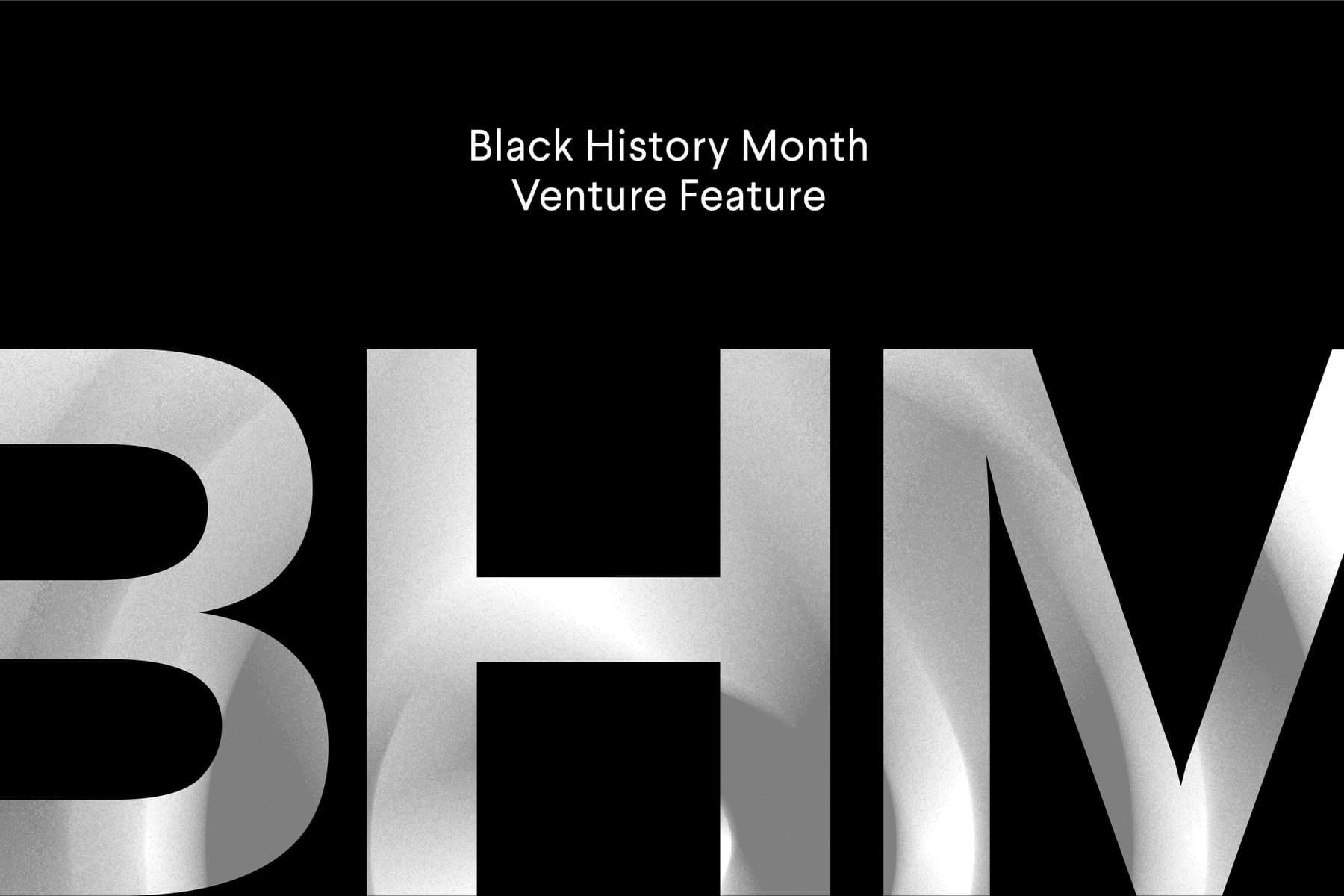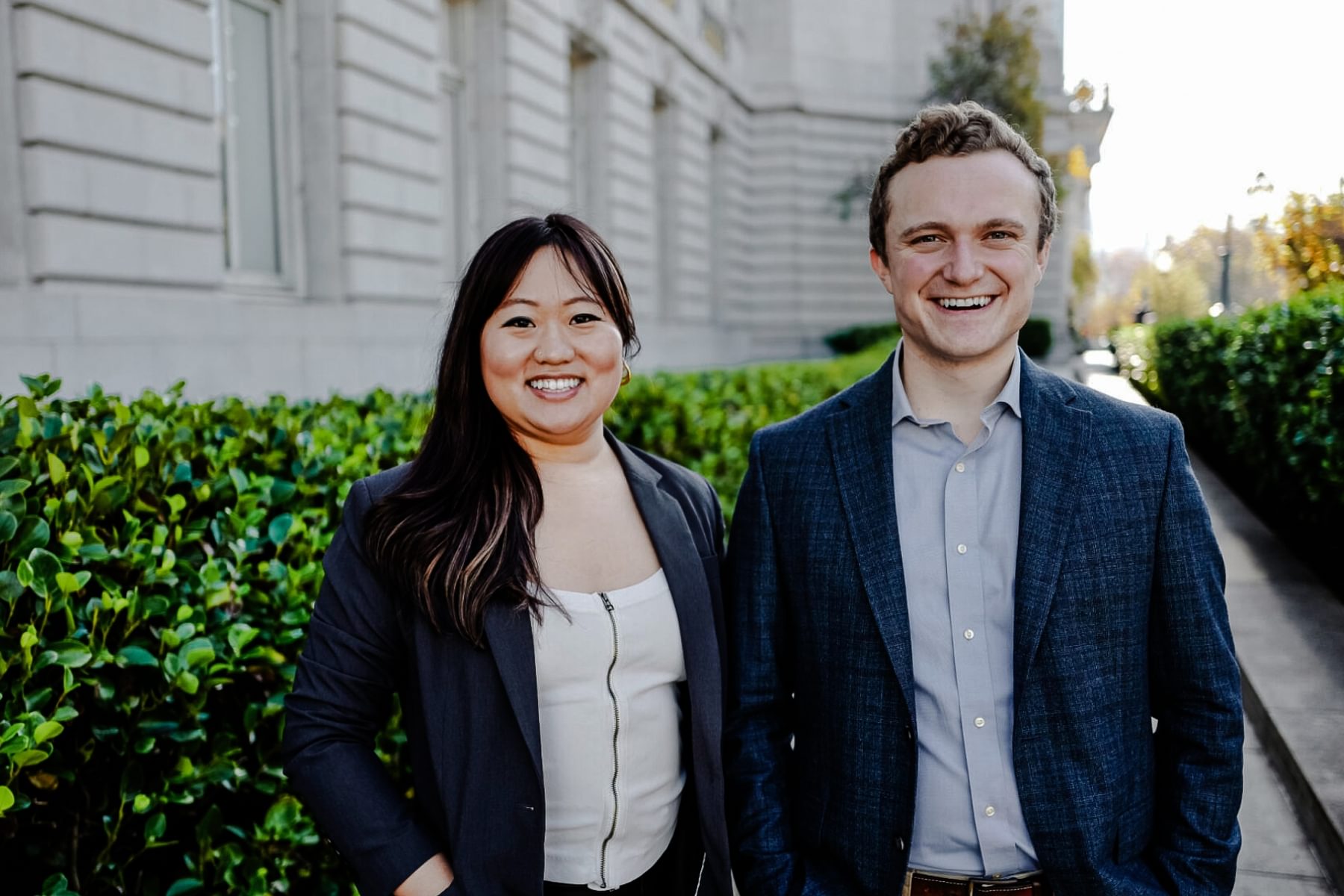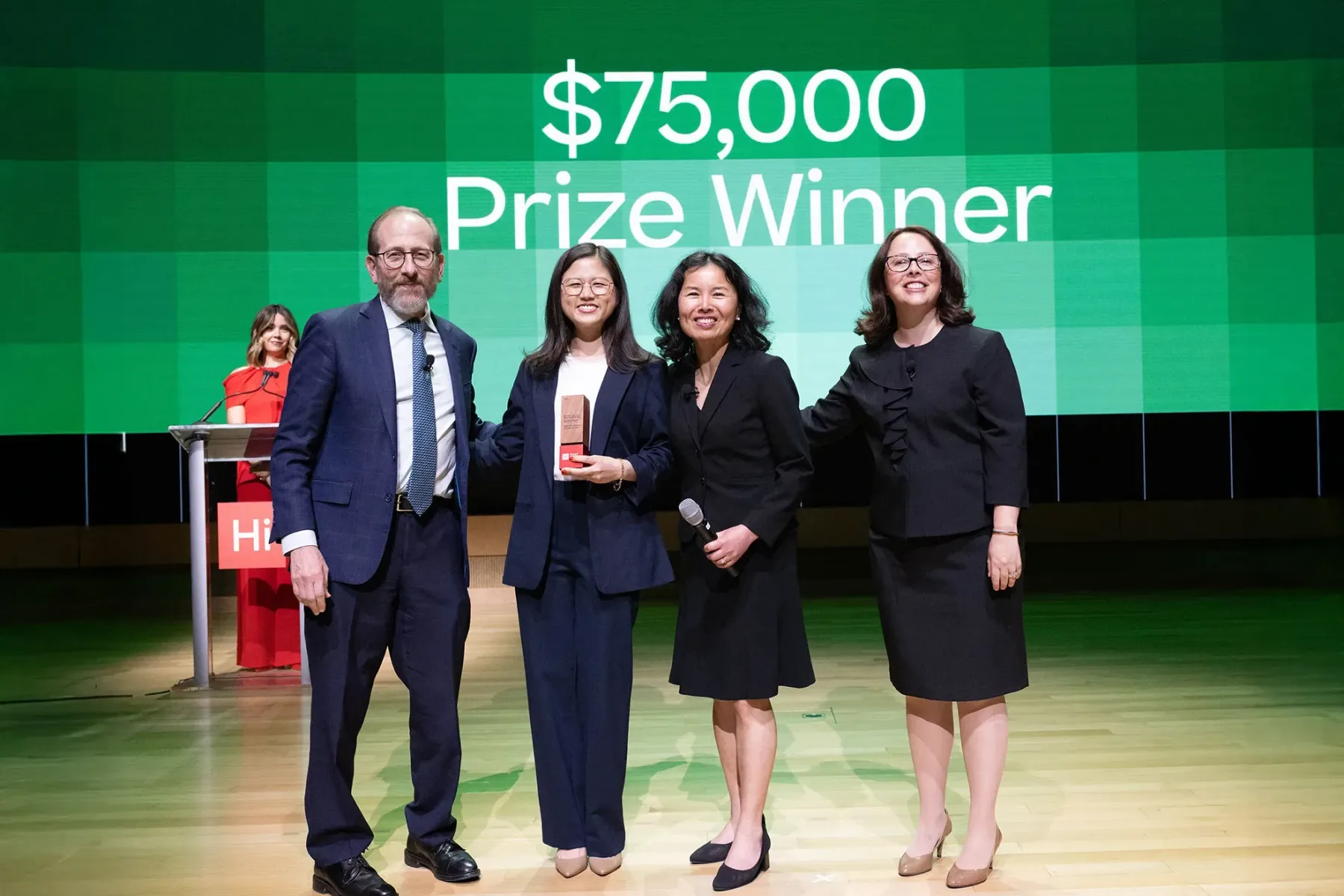I am excited to introduce you to more outstanding Black-led teams in our Harvard Innovation Labs community. But first, a note about Black History Month: Why is Black History Month important? It should go without saying, but it’s our chance to remind each other that Black innovators have been making major contributions to society for centuries, and indeed, Black history happens every day.
What is hopeful about this moment is the emphasis we’re seeing in society on the Black experience and the ways we are finally starting to honor Black leaders’ contributions throughout history. In the entrepreneurship space, we’re beginning to see more Black-led venture funds and more acknowledgment of the need to resource Black entrepreneurs. The conversation is slowly changing. I always think of Dr. Martin Luther King’s words from his 1960 “Keep Moving from This Mountain” address at Spelman College, when he said, “The basic thing is to keep moving.” Maintaining this momentum is essential, given how far we still have to go.
What’s the payoff when we fully support Black innovators and the ventures they build? When all innovative ideas are shared (across all different lived experiences) and given the recognition they deserve, our entire society benefits. We enter a future state where no ideas are wasted.
In celebration of Black History Month, we’ve curated these resources from across campus:
- View a full calendar of events from the Office for Equity, Diversity, Inclusion, and Belonging.
- Visit Harvard in Focus for features, profiles, podcasts, and more.
- Check out episode 1 of Pathways to Inclusive Entrepreneurship from Harvard Business School’s Race, Gender, and Equity Initiative, which features the i-lab’s executive director, Matt Segneri.
- Learn how Harvard is addressing its legacy of slavery and its commitment to future progress.
- Read Harvard Business School’s Advancing Racial Equity plan.
- And last, but not least, follow our Black Innovators series on our @HarvardInnovationLabs social channels to learn about the enduring legacy of Black visionaries whose names you may not (yet) know.
–Adrian Gill, Creative Director
Miles Weddle: Cofounder and CEO, Pearl
Miles Weddle (Harvard College 2020) is cofounder and CEO of Pearl, an online community providing its members with community, tools, and data to make better career decisions. Through Pearl, Weddle and his co-founder, Eke Wokocha, want to create a more equitable job search experience for everyone. Since launching in beta in November of last year, Pearl has partnered with Harvard, Emory University, Haverford College, and Carleton College to roll out the platform to their students. More than 5,000 job seekers have subscribed to Pearl’s job recommendation newsletter. Weddle is currently part of Harvard Innovation Labs’ program for alumni entrepreneurs. We caught up with Weddle to learn more about his venture.
What are your recent wins?
We launched our $500K pre-seed round and already have $250K committed from angels, including the founder of GroupMe Jared Hecht and Jason Mayden, CEO at Trillicon Valley. On the product side, we have aggregated thousands of companies into our database. To give job seekers a true understanding of what working for an employer is like, we’ve gathered representation information along with data on culture, work-life balance, and compensation.
What excites you about the future for Black founders and entrepreneurs?
The future for Black founders and entrepreneurs is an exciting one. While there is still a lot of work to be done to address the lack of funding, mentorship, and other resources provided to founders of color, we are seeing more and more Black founders achieve success with venture-backed startups. We’re beginning to see resources such as accelerator programs specifically tailored to Black entrepreneurs, helping address the gaps between Black and non-Black entrepreneurs.
As Black entrepreneurs, I think we can also leverage culture to our advantage. This allows us to create solutions to problems and experiences that are tailored and familiar to our target audiences, resulting in faster growth and success. With more resources and information becoming accessible, I think the future is bright.
How do you see your sector evolving in the next five or ten years?
We will see a shift in the way job seekers search for and apply to jobs, as well as how employers recruit and hire. Technology will continue to play a major role, and we expect to see an increase in the use of AI and machine learning to automate the job search process. Job seekers will be able to access more information about employers, including company culture, work-life balance, and compensation, allowing for a more informed decision-making process. We also expect to see an increase in remote and freelance job opportunities. This will open access to a wider pool of talent as job seekers will no longer be limited to a single geographic location. Companies will be able to access talent more quickly and cost-effectively. We will likely also see an increase in the number of job search platforms and tools available to job seekers, making the process of finding a job easier and more efficient.
The job search sector is likely to undergo a significant transformation over the next decade, and Pearl is leading the way.

Yacine Fall: Cofounder, HYVE
Current student i-lab member Yacine Fall (MPH 2023) is cofounder of HYVE, a secure data platform connecting data collectors with participants across language and cultural barriers faster. For researchers struggling to collect meaningful data from a more diverse group of participants cost-effectively and efficiently, HYVE provides accessible AI technology and data management tools. Starting with public health, Fall’s really big vision is to democratize data access and participation. She wants HYVE to inspire and inform new ecosystems in science and business where everyone can collect quality data.
What are your recent wins?
Completing the first iteration of our pilot was a huge accomplishment! I wanted to demonstrate that when we center the needs of our participants, we can more efficiently collect data. We wanted to remove barriers to accessibility while also depicting the world we wish to see: one where stories are truly valued. When we received 25 responses in less than 24 hours, we were shocked. I allowed myself to dream about the potential of HYVE’s data-collection platform. Whose story has gone unheard? With this platform, whose stories will we hear? We have confidence in the quality and efficiency of our process. The information we have gathered highlights HYVE’s potential to make a significant impact on the data-collection field.
What excites you about the future for Black founders and entrepreneurs?
I am thrilled about the future for Black founders and entrepreneurs because of our exceptional creativity and ingenuity. I look forward to a future where we can draw from the unique perspectives and experiences of our communities to give birth to innovative and game-changing ideas. Despite facing marginalization, I am inspired by the resilience and determination of our generation to harness our challenges and turn them into opportunities. With a deep understanding of the challenges faced by resource-denied communities, I am confident that we can not only create solutions that work for us, but also share the benefits with the world. Representation matters because it inspires people, and inspiring change will create a better world. I am excited for a future where Black founders and entrepreneurs have equal opportunities to succeed. I envision a world where our unique perspectives and experiences are valued and integrated into the mainstream. This not only benefits the Black community, it brings fresh perspectives and innovative solutions to benefit all of humanity. By creating more opportunities for Black individuals to launch and grow their businesses, we can create a more equitable and inclusive future that also fosters a more innovative and prosperous world.
What is your perspective on how health care and mental health care services are changing?
As the world's population continues to grow, it is crucial to efficiently gather and analyze health information. In many recovering economies, there is a pressing need to quickly gather information about population health to make informed decisions. This was especially apparent during the recent pandemic, but it is also relevant in areas impacted by epidemics and other public health crises. The data droughts in many recovering economies have a significant impact on health outcomes. In Africa, there is a dire need for more resources to support the research and development sector and to amplify the voices of health service beneficiaries. In the U.S. and globally, data is a powerful tool for shaping policy, but it all starts with accurately capturing and incorporating the experiences and perspectives of all people. HYVE was inspired by the challenges faced in collecting meaningful data. Existing methods are both time-consuming and expensive. They don't serve the needs of marginalized communities effectively. Recognizing the widespread use of messaging platforms such as SMS and WhatsApp in everyday communication, we saw an opportunity to leverage accessible communication methods with the power of AI technology to empower individuals to share their experiences and contribute to research efforts.
How do your identities influence your work?
My identity plays a huge role in shaping my drive for innovation. Being a Black, Muslim woman has allowed me to see the beauty and resilience within these communities. My upbringing and community have taught me the true meaning of accessibility and the importance of creating solutions that include those who have been historically excluded from resources. My observations and lived experiences have taught me to understand some of the unique challenges facing marginalized communities as well as the importance of designing solutions that are inclusive and accessible to all. I believe that technology and innovation have the power to level the playing field and provide access and opportunities that have been denied to many. This is what inspires me to keep going every day.

Austin Martin: Founder and CEO, Rhymes with Reason
Ed Tech company Rhymes with Reason aims to democratize English language literacy through music. Its founder, Austin Martin (EdM 2022), and his team leverage popular music – to use their words, “a bank of vocabulary known to people of all economic and racial backgrounds” – to engage young people in reading and disrupt educational inequities.
Founded in 2017, Rhymes with Reason’s culturally relevant approach to improving education has enabled Martin and his team to reach 2,500 young people with their product through schools and other institutions. Martin was a recipient of the Harvard Innovation Labs Social Impact Fellowship Fund in 2021 and is currently a 2022-2023 cohort member of Launch Lab X GEO, the i-lab’s program for alumni entrepreneurs. Today, Rhymes with Reason is focusing on expanding its corporate partnership model to reach even more students and reward them for performance gains with exclusive prizes. The i-lab recently caught up with Martin to learn about his recent successes and plans for the future.
What are your recent wins?
Most have come in the form of sponsorship/partnership deals we’ve made with a few reputable institutions that are helping bring Rhymes with Reason to new students. At the end of 2022, we launched in Philadelphia, thanks to sponsorship support from NBA superstar Joel Embiid, who helped make Rhymes with Reason accessible to students at four afterschool programs in the Philadelphia area (NoMo, YEAH Philly, Philly Youth Basketball and the Boys & Girls Club of Philadelphia). In January, we closed a deal with Kaiser Permanente to launch a new module that exposes middle school students in the Vallejo City Unified School District to terminology and language related to health and wellness, of course via popular music lyrics.
What excites you about the future for Black founders and entrepreneurs?
I am confident that we are moving into a place with greater institutional support, in part, due to more of us occupying positions of institutional influence. We may not have to work twice as hard, or prove ourselves twice as much, just to sustain and/or succeed in our enterprises. Slowly, with more funding specifically set aside to help Black founders scale our ventures and more mentors who have been founders themselves – who can lend advice about how to navigate the waters as a Black founder –we are moving in an exciting direction that makes success more likely. We also need elevated Black voices with platforms to significantly contribute to narrative and conversation around these issues.
What is it about the intersection of arts and education that energizes you?
By default, I’ve always seen the world through somewhat of an artistic lens. My father has been a lifelong jazz musician, and since I was a baby, music, specifically, has been one of the main sources of context [for me to process] my world and experience. Unsurprisingly, education also felt most natural to me within the context of music.
Lyrics energize me above all else. They have always felt like a natural learning opportunity – learning about somebody else’s perspective, somebody else’s choice of words, mood, story, language... There are millions of people like me who have had a lifelong appreciation for lyrics as an opportunity to express and learn. When poignant lyrics are paired with a great beat, there's nothing like it. This intersection of lyrics, music, and education is really the crux of who I am in many ways. It’s the foundation of the spark that I’m trying to give to the next generation of kids.






